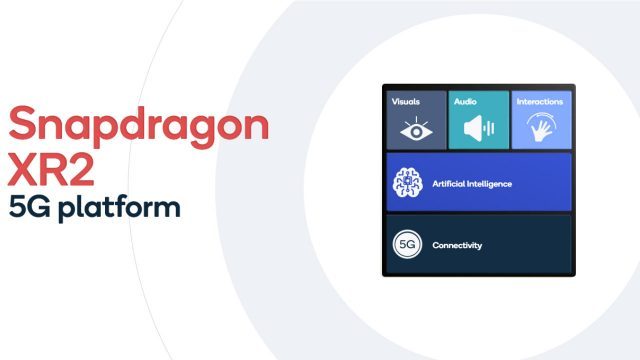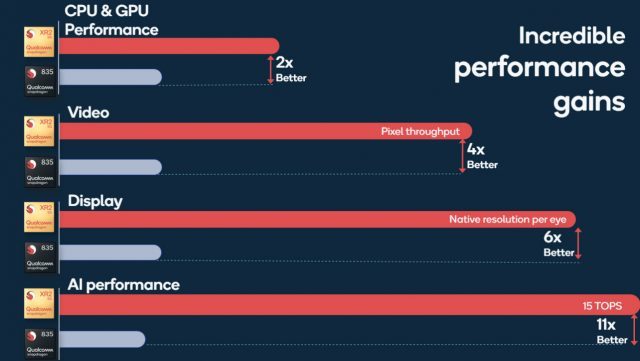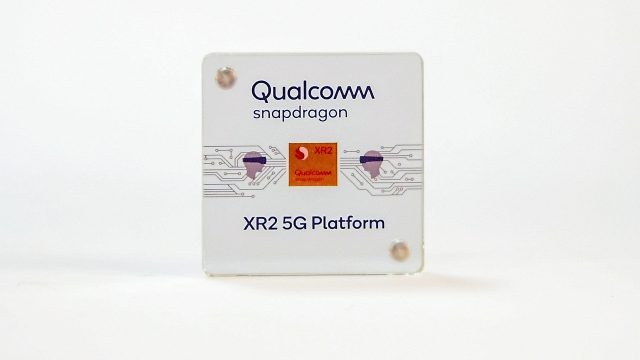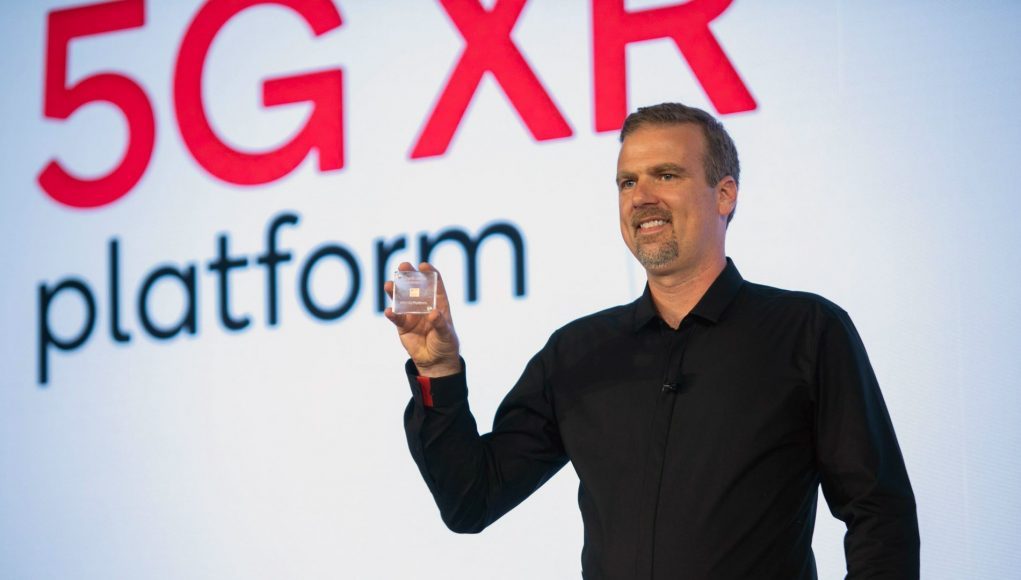Qualcomm today announced Snapdragon XR2 5G, its latest chipset platform dedicated to the needs of standalone VR and AR headsets. The new platform is aimed at high-end devices with support for 3K × 3K displays at 90Hz, along with integrated 5G, accelerated AI processing, and up to seven simultaneous camera feeds for user and environment tracking.
Qualcomm is the name when it comes to the guts which power standalone AR and VR headsets. The company’s chipset can be found in leading standalone headsets like Oculus Quest, Go, Vive Focus, HoloLens 2, Lenovo Mirage Solo, and plenty more.
For the most part, these devices have adopted chipsets that were originally designed for smartphones, but in 2018 Qualcomm introduced the Snapdragon XR1, it’s first chipset specially made for AR and VR headsets.

Today the company is introducing the latest iteration of that chipset, the Snapdragon XR2 5G. While XR1 was made for low-end devices, XR2 5G targets high-end standalone headsets, making it a candidate for Oculus Quest 2, Magic Leap 2, and similar next-gen devices.
XR2 offers up notable improvements over Snapdragon 835 (one of the most common chipsets found in current standalone headsets, including Quest); Qualcomm claims 2x performance in CPU & GPU, 4x increase in pixel throughput for video playback, and up to 6x resolution per-eye compared to Snapdragon 835—supporting up to 3K × 3K displays at 90Hz.

That’s all pretty much par for the course in terms of the kinds of improvements you’d like to see from one generation of chipset to the next, but with XR2, Qualcomm is increasingly tuning the platform for the needs of AR and VR headsets specifically.
Notably, XR2 supports up to seven simultaneous camera feeds (up from four in prior platforms). This is key for advanced tracking, both of the environment and the user. Oculus Quest, for instance, uses four cameras to track the position of the headset and controllers. The option for three additional camera feeds opens the door to additional cameras for eye, mouth, or even leg tracking. And let’s not forget the host of benefits that eye-tracking can unlock.
Qualcomm also says that XR2 offers low-latency pass-through video which could improve the pass-through video experience on headsets like Quest, and potentially enable a wider range of pass-through AR use-cases.
Additionally XR2 boasts significantly accelerated AI processing; 11x compared to Snapdragon 835, which could greatly benefit the sort of operations used for turning incoming video feeds into useful tracking information.
And then there’s integrated 5G. While 5G may not be the essential ingredient to an XR future that the hype would have you believe, it means that future devices can include a high bandwidth, low-latency connection built right in. This would be especially useful for any AR devices expected to be worn outside of the home.
Qualcomm Remains Bullish on XR Heading into 2020

Credit where credit is due: Qualcomm identified the XR segment early on as something worth investing in, and they’ve kept at it. With the announcement of XR2, it’s clear that Qualcomm believes that XR is destined to become a huge market and the company aims to play a major role in it.
“Competitors are not coming close to our commitment in XR,” said Hugo Swart, Qualcomm’s VP of XR, in a briefing call with Road to VR.
In Q1 2020, Qualcomm plans to introduce the latest version of their XR reference headset based on XR2, which the company offers up as a blueprint for headset makers through its HMD Accelerator Program. Qualcomm expects that the first commercial headsets to launch with XR2 will come in the second half of 2020.
Algonside XR2, Qualcomm plans to continue to offer the existing XR1 chipset to cover lower-end XR headsets.







